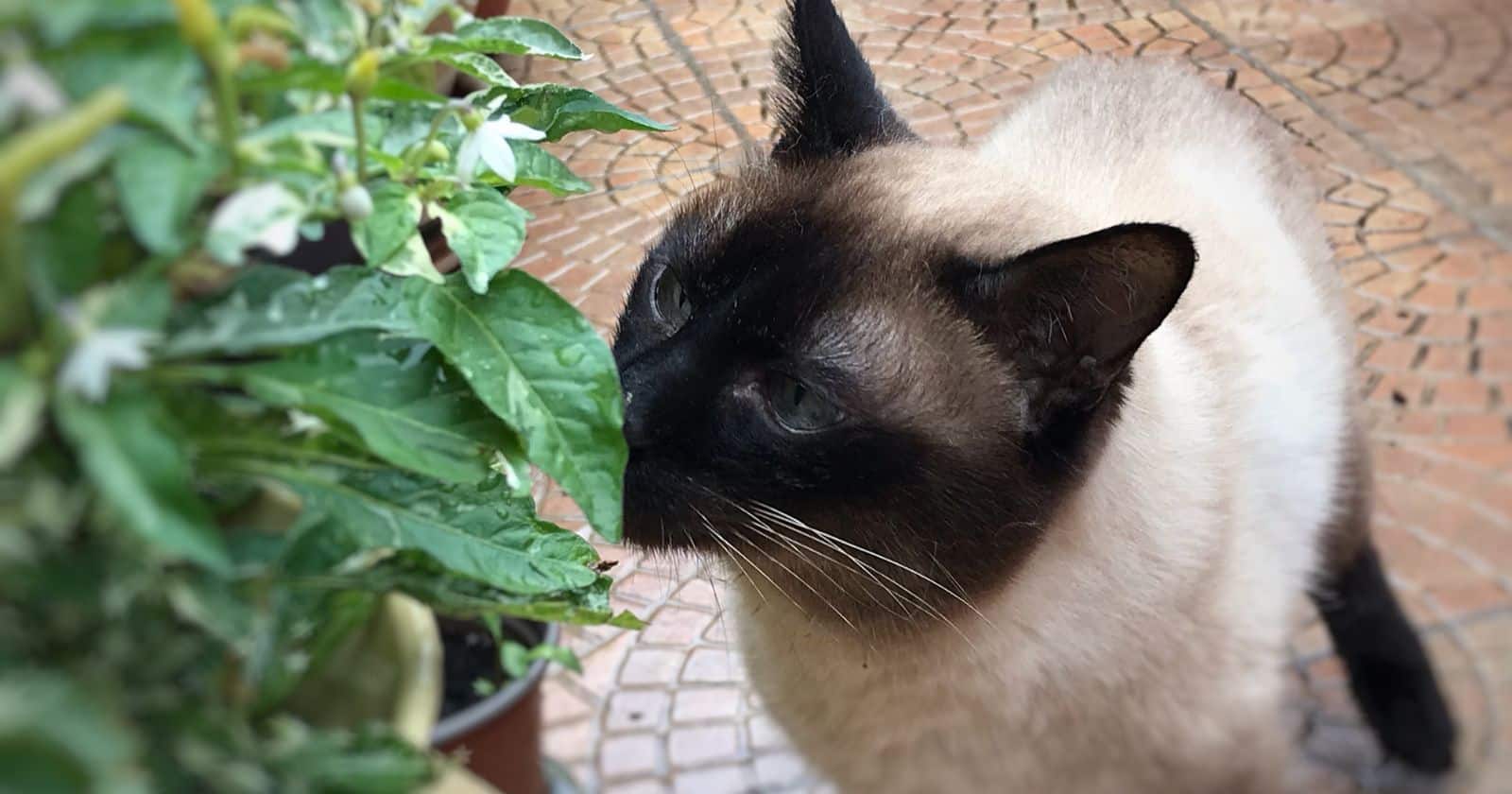Finding out your cat ate some spicy human food can be scary. But don’t panic! With quick action, you can help your cat feel better fast.
If you see your cat eat something spicy or think they snatched some spicy food, follow these important steps right away:
- Check for any mouth discomfort. See if they are drooling, licking their lips, or trying to swallow a lot.
- Take away any remaining spicy food. Your cat could eat more and get sicker. Toss it in the trash immediately.
- Give them water to drink. Help dilute the spicy flavor. Add tuna juice to tempt them.
- Call your vet. Ask if you should make your cat vomit up the food. The sooner it leaves the tummy, the better.
- Watch for vomiting or diarrhea. These tend to start 6-12 hours after eating spicy stuff.
- Don’t feed your cat for 12-24 hours. This rest helps their upset tummy feel better.
- Slowly restart bland meals when symptoms stop. Try boiled chicken and rice at first.
Catching spicy food ingestion early and taking quick action minimizes the chance your cat will become seriously ill. This article will explain why spicy foods are dangerous for cats and how to provide the best at-home treatment. Arm yourself with the right info so you can spring into action if this scary situation ever happens!
Why Spicy Foods Are Harmful for Cats
Cats simply aren’t built to handle spicy seasonings like capsaicin found in chili peppers. Their tongues and digestive tracts lack the protective mechanisms humans have developed to enjoy spicy cuisine.
When cats ingest spicy foods, the burning sensation and inflammation can cause a variety of unpleasant symptoms and health issues.
Irritation and Discomfort
Capsaicin immediately activates pain receptors, so spicy foods cause oral irritation in cats. You may notice lip licking, drooling, or head shaking right after they eat something spicy.
The gastrointestinal tract can also become inflamed and irritated. Symptoms like vomiting and diarrhea often crop up 6-12 hours after ingestion.
Stomach and Digestive Problems
Spicy seasonings aggravate the digestive tract lining. Cats may experience nausea, cramping, gas, constipation, or bloody stool. The irritation can also damage the tissues of the esophagus and stomach.
Dehydration
Frequent vomiting and diarrhea lead to fluid loss and dehydration. Left untreated, this electrolyte imbalance can have life-threatening consequences.
Liver and Kidney Damage
The kidneys work overtime trying to flush capsaicin out of the body. Prolonged exposure in large amounts can lead to toxin buildup and impaired kidney function. Spicy foods may also detrimentally impact liver health.
So while an occasional tiny taste likely won’t seriously harm your cat, it’s absolutely best to keep all spicy foods far out of paw’s reach. The discomfort and health risks are simply not worth the risk.
Signs Your Cat May Have Eaten Something Spicy
Cats can’t tell us when they’re feeling under the weather, so it’s crucial to recognize symptoms of spicy food ingestion. Contact your vet immediately if you notice any of the following:
- Pawing at the mouth
- Drooling or lip licking
- Repeated swallowing motions
- Head shaking
- Loss of appetite
- Nausea or vomiting
- Diarrhea
- Bloody stool
- Dehydration
- Increased thirst and urination
- Lethargy
- Hiding or abnormal behavior
These symptoms typically develop within 6-12 hours but may appear sooner if a large amount was consumed. The severity depends on the
What to Do If Your Cat Ate Something Spicy
If you catch your cat in the act of eating something loaded with spices or suspect it may have happened, quick action is key. Follow these steps to alleviate discomfort and prevent further health issues:
Step 1: Check for Immediate Symptoms
First, inspect your cat’s mouth for signs of irritation like drooling or pawing at the lips and tongue. Also watch for head shaking, swallowing, and distress vocalizations.
Your cat may frantically lick its coat if skin irritation occurs. Check for areas of red, inflamed skin, especially around the mouth and abdomen.
Step 2: Remove Access to the Spicy Food
If your cat ate human food containing spices, immediately take it away and discard it. This will prevent any additional consumption which could make symptoms worse.
Step 3: Give Them Plenty of Water
Encourage your cat to drink water to help dilute the capsaicin. Try adding a bit of tuna juice or low-sodium broth to increase palatability. Using a drinking fountain may entice your cat to drink more.
Step 4: Contact Your Veterinarian
Phone your vet, especially if symptoms concern you. They can advise you on inducting vomiting if your cat just ate the spicy food. The sooner it’s out of the stomach, the better.
In severe cases, your vet may request you bring your cat in right away for examination and supportive treatment. Share details about what and how much your cat ate to help guide care.
Step 5: Monitor Behavior and Symptoms
Keep a close eye on your cat over the next 6-12 hours. Note any concerning symptoms like vomiting, diarrhea, lethargy or distress. Recording a timeline helps inform your vet in a follow-up call or visit.
Step 6: Avoid Food for 12-24 Hours
Withhold all food for at least 12 hours to give your cat’s stomach a chance to settle. When symptoms resolve, slowly reintroduce bland foods like boiled chicken and rice.
At-Home Treatment for Mild Ingestion
For mild cases where your cat consumed a small amount of mildly spicy food, you can provide supportive care at home. However, contact your vet at the first sign of concerning symptoms in case blood work or IV fluids are needed.
- Encourage hydration – Provide fresh water at all times. Add tuna juice or broth for encouragement. Use a fountain for interest. Offer ice chips for sore mouths.
- Feed a bland diet – Once symptoms resolve, feed boiled chicken and rice for a few days. Then slowly transition back to your cat’s normal food.
- Offer probiotics – Plain yogurt or supplements help restore good gut bacteria after diarrhea or vomiting.
- Try digestive enzymes – Supplements like papain may aid digestion of irritating capsaicin. Consult your vet on dosage.
- Watch for dehydration – Weigh your cat daily and check skin elasticity. Signs like lethargy, dry gums, and sunken eyes indicate emergency fluid therapy is needed.
- Avoid anti-inflammatories – Human NSAID pain relievers are toxic for cats. Never give them to your cat without veterinary approval.
Preventing Your Cat from Eating Spicy Foods
An ounce of prevention is absolutely worth a pound of cure when it comes to cats and spicy foods. Here are some tips to avoid this scary scenario:
- Store human food out of reach of cats. Use pet-proof containers.
- Never leave food unattended during eating or cooking. Curiosity and fast paws put cats at risk.
- Avoid cooking with spices if housing cats openly in the kitchen. Opt for blander recipes.
- Thoroughly clean any spilled human food right away. Don’t allow access until surfaces are wiped down.
- Feed cats before spicy meal prep. Full bellies make them less likely to beg or steal.
- Keep trash cans tightly covered. Cats can smell intriguing leftovers and investigate.
While the occasional lick of something mild likely won’t hurt, it’s simply best not to chance your cat consuming spicy foods. A little planning goes a long way in keeping your curious cat safe!
Alternative Human Foods Cats Can Eat
Though spicy foods are off the table, some bland human foods can be an occasional treat for cats. In moderation, try offering:
Proteins:
- Boiled, unseasoned chicken or turkey
- Canned tuna packed in water (limit due to mercury content)
- Plain scrambled eggs
- Low-sodium deli meats
Dairy:
- Plain yogurt (supports digestion)
- Small amounts of cheese
Carbs:
- Cooked white rice
- Roasted or steamed potato
- Oatmeal
- Pasta
Fruits and Veggies:
- Steamed green beans or carrots
- Mixed veggie juice (limit salt and seasonings)
- Mashed banana
- Cantaloupe
Never feed cat bones, onions, garlic, grapes, raisins, chocolate, or anything spicy! And always transition new foods slowly while monitoring for allergic reactions.
Keeping Your Cat Happy and Healthy
Beyond just avoiding spicy foods, there are many ways to keep your beloved cat happy and healthy. Here are some top tips:
- Annual vet visits – Checkups detect issues early when they’re most treatable. Keep vaccines and parasite control current.
- Balanced diet – Choose a high-quality cat food tailored to your cat’s age and activity level. Follow feeding guidelines.
- Exercise and play – Make time for daily interactive play sessions. Puzzle toys provide mental stimulation.
- Enrichment – Provide scratching posts, cat trees, and cozy beds. Consider adoption of a feline companion.
- Positive reinforcement – Reward wanted behaviors with treats and praise. Ignore unwanted behaviors rather than punishing.
- Grooming – Brush frequently to reduce hairballs and skin issues. Trim nails as needed. Check ears and teeth too.
When to Take Your Cat to the Vet After Ingesting Spicy Food
Mild cases of spicy food ingestion can often be managed at home. However, it’s critical to involve your vet if symptoms concern you or become severe. Emergency veterinary treatment may be necessary if your cat experiences:
- Repeated vomiting lasting over 6 hours
- Diarrhea lasting over 24 hours
- Lethargy or depression despite symptom treatment
- Signs of mouth pain like drooling or pawing at the lips
- No interest in food for more than a day
- Weight loss exceeding 5% of body weight
- Poor skin elasticity, dry gums, or other signs of dehydration
- Abnormal vocalizing suggesting abdominal pain
- Bloody vomit or black, tarry stool
- Difficulty breathing
- Seizures or muscle tremors
In these scenarios, bloodwork, injectable anti-nausea medication, IV fluid therapy, and hospitalization may be required. Don’t hesitate to call or visit your vet if your cat’s condition seems concerning after eating spicy food.
FAQs: Cats and Spicy Foods
Do you still have questions about cats and spicy foods? Here are answers to some frequently asked questions:
Can I give my cat spicy tuna?
No, tuna with spicy seasonings or hot sauce should never be fed to cats. Stick with plain tuna canned in water and limit intake due to mercury concerns.
What happens if a cat eats spicy food?
Spicy foods commonly cause oral irritation, vomiting, diarrhea, and dehydration in cats. More severe cases can lead to kidney or liver damage. It’s best to avoid exposing cats to spicy seasonings.
Why do cats eat spicy food if it hurts them?
Cats are naturally curious and may eat spicy human food before realizing it causes them discomfort. Intriguing food smells lure them in despite the dangers. That’s why it’s critical owners keep spicy foods away from cats.
Will my cat be OK if he eats a little bit of something spicy?
Ingestion of a tiny amount of mildly spicy food likely won’t seriously harm your cat. But since reactions vary, it’s smarter to avoid any exposure to prevent adverse effects. Don’t offer spicy foods intentionally.
What spices are toxic to cats?
Onion, garlic, nutmeg, and excess salt can cause toxicity in cats. Capsaicin in spices like chili peppers is also problematic. Stick with cat-safe seasonings like chicken or vegetable broth. When in doubt, don’t
In Conclusion: Prioritize Safety and Act Quickly
Human food can pose risks for cats, but armed with the right information, cat parents can respond appropriately if the unthinkable happens. Should your cat manage to grab a mouthful of spicy deliciousness, stay calm and take steps to relieve discomfort and prevent complications.
Remove the offending food immediately, encourage hydration, and monitor for adverse symptoms. Consulting your trusted veterinarian is key, especially if symptoms seem serious. With prompt care guided by your vet, your
Stay vigilant about keeping spicy foods away from cats in the future. Focus on providing a balanced species-appropriate diet, mental stimulation, veterinary care, and lots of love. Your devoted purring pal relies on you for their health and happiness!





